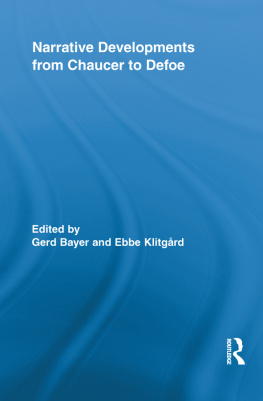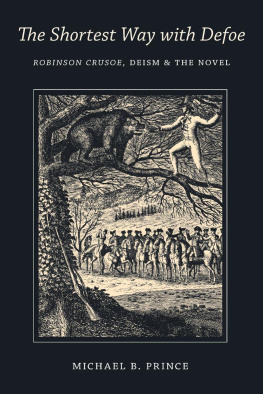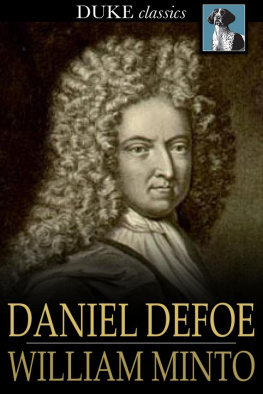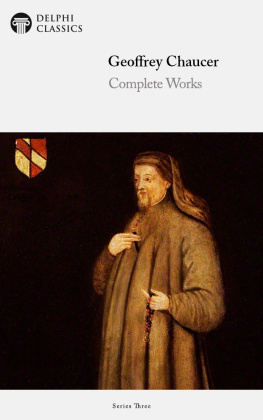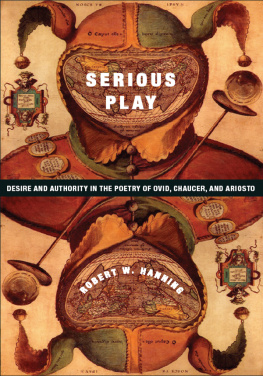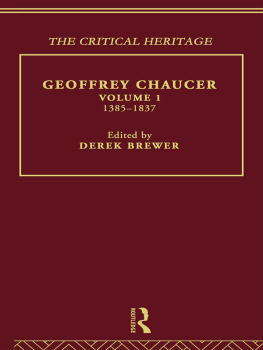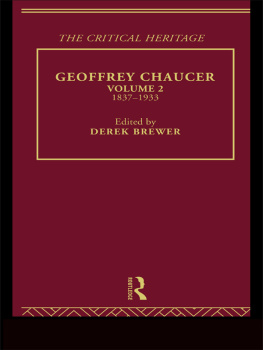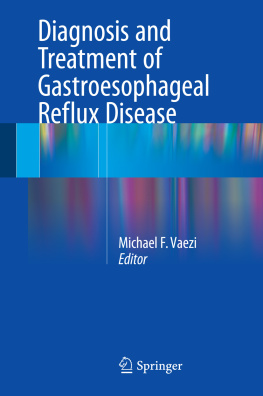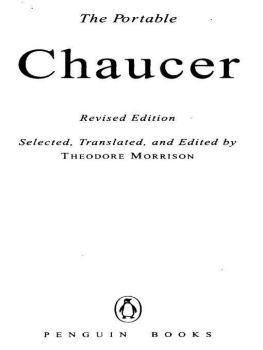Gerd Bayer - Narrative Developments from Chaucer to Defoe
Here you can read online Gerd Bayer - Narrative Developments from Chaucer to Defoe full text of the book (entire story) in english for free. Download pdf and epub, get meaning, cover and reviews about this ebook. City: London, New York, year: 2014, publisher: Routledge Taylor & Francis Group, genre: Art. Description of the work, (preface) as well as reviews are available. Best literature library LitArk.com created for fans of good reading and offers a wide selection of genres:
Romance novel
Science fiction
Adventure
Detective
Science
History
Home and family
Prose
Art
Politics
Computer
Non-fiction
Religion
Business
Children
Humor
Choose a favorite category and find really read worthwhile books. Enjoy immersion in the world of imagination, feel the emotions of the characters or learn something new for yourself, make an fascinating discovery.
- Book:Narrative Developments from Chaucer to Defoe
- Author:
- Publisher:Routledge Taylor & Francis Group
- Genre:
- Year:2014
- City:London, New York
- Rating:3 / 5
- Favourites:Add to favourites
- Your mark:
- 60
- 1
- 2
- 3
- 4
- 5
Narrative Developments from Chaucer to Defoe: summary, description and annotation
We offer to read an annotation, description, summary or preface (depends on what the author of the book "Narrative Developments from Chaucer to Defoe" wrote himself). If you haven't found the necessary information about the book — write in the comments, we will try to find it.
Narrative Developments from Chaucer to Defoe — read online for free the complete book (whole text) full work
Below is the text of the book, divided by pages. System saving the place of the last page read, allows you to conveniently read the book "Narrative Developments from Chaucer to Defoe" online for free, without having to search again every time where you left off. Put a bookmark, and you can go to the page where you finished reading at any time.
Font size:
Interval:
Bookmark:

from Chaucer to Defoe
Renaissance Literature and Culture
1. Stillness in Motion in the
Seventeenth-Century Theatre
P.A. Skantze
2. The Popular Culture of
Shakespeare, Spenser and Jonson
Mary Ellen Lamb
3. Forgetting in Early Modern
English Literature and Culture
Lethes Legacies
Edited by Christopher Ivic and
Grant Williams
4. Luce Irigaray and
Premodern Culture
Thresholds of History
Edited by Theresa Krier and
Elizabeth D. Harvey
5. Writing, Geometry and Space
in Seventeenth-Century England
and America
Circles in the Sand
Jess Edwards
6. Dramatists and their Manuscripts
in the Age of Shakespeare, Jonson,
Middleton and Heywood
Authorship, Authority and
the Playhouse
Grace Ioppolo
7. Reading the Early Modern Dream
Edited by Katharine Hodgkin, Michelle
O Callaghan, and S. J. Wiseman
8. Fictions of Old Age in Early
Modern Literature and Culture
Nina Tauton
9. Performing Race and Torture on
the Early Modern Stage
Ayanna Thompson
10. Women, Murder, and Equity in
Early Modern England
Randall Martin
11. Narrative Developments from
Chaucer to Defoe
Edited by Gerd Bayer and Ebbe Klitgrd
from Chaucer to Defoe

First published 2011
by Routledge
270 Madison Avenue, New York, NY 10016
Simultaneously published in the UK
by Routledge
2 Park Square, Milton Park, Abingdon, Oxon OX14 4RN
Routledge is an imprint of the Taylor & Francis Group, an informa business
2011 Taylor & Francis
The right of Gerd Bayer and Ebbe Klitgrd to be identified as the authors of the editorial material, and of the authors for their individual chapters, has been asserted in accordance with sections 77 and 78 of the Copyright, Designs and Patents Act 1988.
Printed and bound in the United States of America on acid-free paper by IBT Global.
All rights reserved. No part of this book may be reprinted or reproduced or utilised in any form or by any electronic, mechanical, or other means, now known or hereafter invented, including photocopying and recording, or in any information storage or retrieval system, without permission in writing from the publishers.
Trademark Notice: Product or corporate names may be trademarks or registered trademarks, and are used only for identification and explanation without intent to infringe.
Library of Congress Cataloging-in-Publication Data
Narrative developments from Chaucer to Defoe / edited by Gerd Bayer and Ebbe Klitgrd.
p. cm. (Routledge studies in Renaissance literature and culture ; 11)
Includes bibliographical references and index.
1. English fictionHistory and criticism. 2. FictionTechniqueHistory. 3. Narration (Rhetoric)History. 4. Literary formHistory. I. Bayer, Gerd, 1971 II. Klitgrd, Ebbe.
PR826.N37 2011
823'.00923dc22
2010036344
ISBN13: 978-0-415-87948-4 (hbk)
ISBN13: 978-0-203-83028-4 (ebk)
EBBE KLITGRD AND GERD BAYER
EBBE KLITGRD
MONIKA FLUDERNIK
MIRIAM NANDI
WILLIAM A. QUINN
ANNA SWRDH
6 Telling Tales: The Artistry of Lady Mary Wroths Urania
RAHEL ORGIS
ROBERT W. MASLEN
G. GABRIELLE STARR
GORAN STANIVUKOVIC
GERD BAYER
NEIL CARTLIDGE
CHRISTINA WALD
This book first began during a teaching exchange that brought the editors together and made us realize that there is a gap in historical narrative research between the late medieval and the early modern period of English literature. Setting out to sketch that territory, we next both organized a seminar at the 2008 conference of the European Society for the Study of English, held at Aarhus University, Denmark. From this, and from a seminar at the 2009 meeting of the American Comparative Literature Association at Harvard University, we pulled a number of papers that, mostly heavily revised, provided a starting point for the book. Further chapters were solicited where we felt that additional coverage of historical or topical content might benefit the overall scheme. We gladly acknowledge that the project received early and encouraging support from Erica Wetter, Elizabeth Levine, and Polly Dodson at Routledge. Two external reviewers provided helpful suggestions that helped us work on the final versions of various chapters. A special thanks is due to our contributors, who stunningly stuck to all our deadlines, patiently listened to our suggestions and requests, and throughout were a real pleasure to work with!
The history of early modern prose fiction relies on the development of formal narrative properties across distinct aesthetic traditions. This collection brings together a range of contributions from literary critics working in medieval studies, renaissance studies, and the Restoration period. It thus sets out to shed new light on a process of formal and informal negotiations between authors and readers about the shape, tone, and direction of narrative forms from, roughly, 1400 to 1700. Much recent work has studied aspects of this process. Naomi Conn Lieblers Early Modern Prose Fiction (2007) as well as Mary Ellen Lamb and Valerie Waynes Staging Early Modern Romance (2009) have added significantly to the state of discussion. Lieblers volume concentrates on social issues relating to class and gender during the Renaissance, with some of the contributions also taking the formal analysis of prose genres in new directions. Lamb and Wayne have collected an impressive range of essays that probe the relationship between romance traditions in prose and drama, taking Shakespeares romances and their prose hypotexts as case-in-point for the claim that thematic echoes reverberated widely across generic divisions. Both books show very convincingly that early modern literature needs to be studied without the blinkers that notions of generic purity may impose on an analysis of the larger system of literature and book culture. Concentrating on the romance as a thematic mode, thus following Barbara Fuchss argument in her monograph Romance (2004), the contributions to Staging Early Modern Romance show the way for what, in the light of academic traditions within the field of English, one could term inner-disciplinary interdisciplinarity. The present volume hopes to reach a similarly inclusive methodological range. It follows, however, a different heuristic trajectory in its perusal of formal developments across a wider historical range while limiting itself more narrowly to narrative fiction.
The historical bracket around the essays collected here, in fact, relates to the history of narrative fiction as it played out in the early modern age. In other words, the use of Chaucer and Defoe as metonymic framing devices suggests that the literary developments represented by these two authors constitute, in case of the former, the highpoint of medieval narrative form and, in the latter, the beginning of Enlightenment prose fiction. The period in between, studied in parts by scholars like Margaret Schlauch, appears as a transitory move, rich in experimentation and thus filled with cross-generic influences. How particular genres affected, influenced, or repelled early modern prose as a narrative tradition marks one of the central themes throughout the chapters included in this volume. In this, they follow an observation that Fredric Jameson, while discussing the romance, uses to link the formal changes in a particular genre to their level of connectivity to the social environment: To put it another way, the combinatoire aims at revealing, not the causes behind a given form, but rather the conditions of possibility of its existence (158). The chapters in the present volume investigate some of these conditions.
Font size:
Interval:
Bookmark:
Similar books «Narrative Developments from Chaucer to Defoe»
Look at similar books to Narrative Developments from Chaucer to Defoe. We have selected literature similar in name and meaning in the hope of providing readers with more options to find new, interesting, not yet read works.
Discussion, reviews of the book Narrative Developments from Chaucer to Defoe and just readers' own opinions. Leave your comments, write what you think about the work, its meaning or the main characters. Specify what exactly you liked and what you didn't like, and why you think so.

